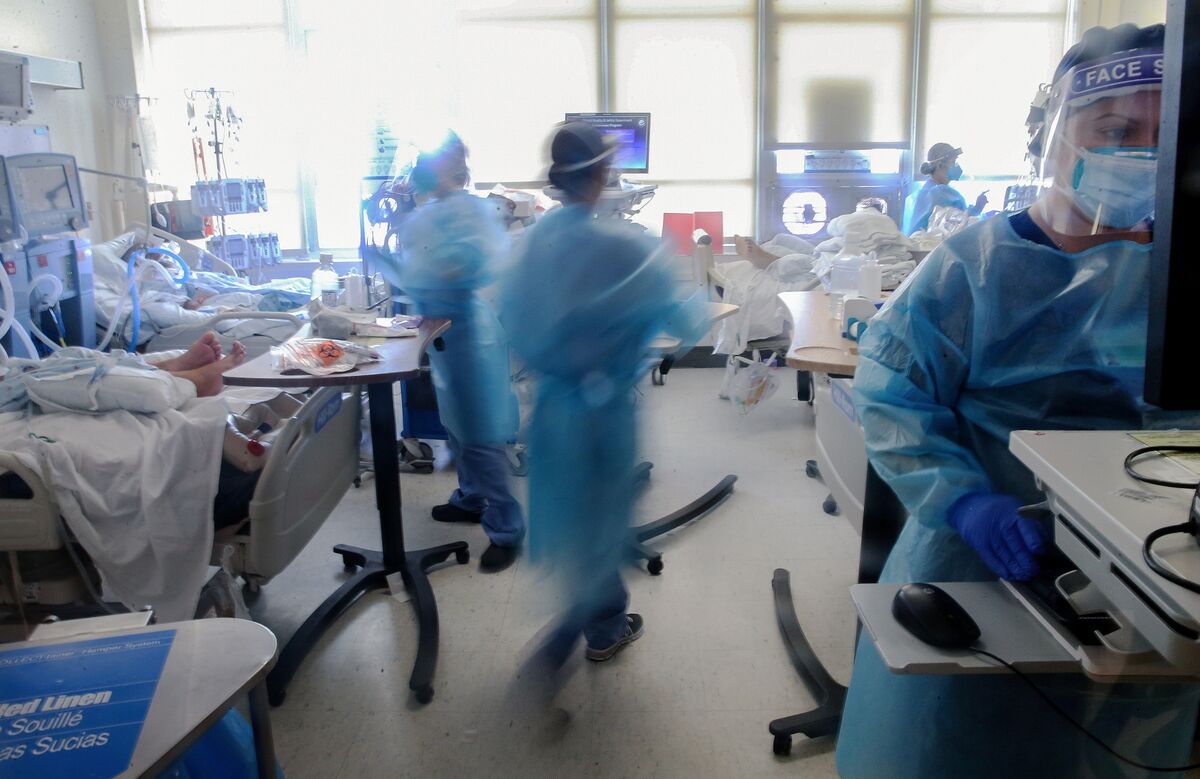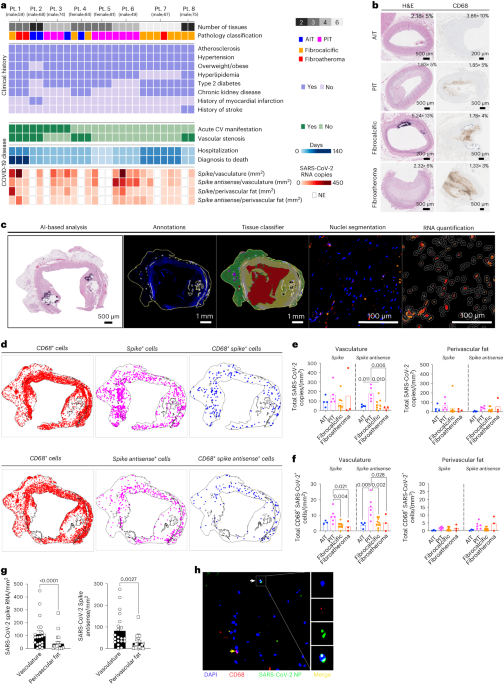Almost three weeks before Covid-19 was reported to be spreading in the US, Patricia Cabello Dowd
dropped dead in the kitchen of her San Jose, California, home. A previously healthy 57-year-old, Dowd had complained of body aches and flu-like symptoms days earlier, but nothing could explain why she died so suddenly.
Lab results 10 weeks later revealed Dowd, a manager at a Silicon Valley semiconductor firm, was one of the first US Covid fatalities. Inflammation of the heart muscle led to a finger-sized rupture which caused lethal hemorrhage, an
autopsy report showed.
BloombergPrognosisNorwegian Cruise Ship Halted at Mauritius Due to OutbreakThese Alabama Clinics Are Still Doing IVF. Others Have Stopped.GSK Says HIV Shot Is Better than Daily Pills for Some PatientsSingapore to Offer Nurses Bumper Payouts to Keep Them Working
Her death portended an alarming pattern: Not only did the pandemic result in the most deaths in a century, but it also triggered a wave of deadly cardiovascular and metabolic illness. While cases like Dowd’s were known from the start, mortality data of the last four years are now revealing the scale of the impact.
Want to know more about this research? Bloomberg’s health editors answered readers’ questions in a Q&A blog.
Health care workers attend to a 45-year-old patient at the cardiovascular intensive care unit at Providence Cedars-Sinai Tarzana Medical Center in Tarzana, California, in Sept. 2021.Photographer: Apu Gomes/AFP/Getty Images
From 2020 to 2022, a quarter of a million more Americans over 35 years old succumbed to cardiovascular disease than predicted based on historical trends, according to Bloomberg analysis of data from the Centers for Disease Control and Prevention. In 2023, age-adjusted stroke mortality was almost 5% above pre-pandemic levels, according to preliminary data, while rates from deaths related to hypertensive heart disease, rhythm abnormalities, blood clots, diabetes and kidney failure were 15-28% higher. Covid had a muted impact on other common causes of death such as cancer and Alzheimer’s disease, the data show.
“The cardiometabolic aftereffects of SARS-CoV-2 have been profound, persistent, and peculiar — really peculiar,” said cardiologist
Susan Cheng, director of public health research at Cedars-Sinai’s Smidt Heart Institute in Los Angeles.
Scientists are still trying to figure out why. It’s unclear how many people died from Covid’s cardiovascular complications and how many died because of its indirect consequences, such as disrupted medical care and worsening rates of
obesity and high
blood pressure.
“Based on our data, we can’t really draw a line to any one of those things,” said Robert Anderson, chief of the statistical analysis and surveillance branch of the Centers for Disease Control and Prevention’s National Center for Health Statistics.
Cardiac Crisis
Heart disease deaths in the US jumped 5.8% in 2020, the most in more than 30 years
Source: CDC WONDER Online Database
Heart disease as underlying cause of death. Data for 2022 are provisional.
Understanding the correlation will help officials mitigate the damage — whether by making health systems more resilient to avoid future outbreak-induced disruptions or by beefing up health screenings to find affected patients and identifying more heart-protective Covid treatments.
It could also give policymakers a more accurate grasp of the pandemic’s consequences, including medical costs. Cardiovascular disease was projected to cost the US
$1.1 trillion by 2035, according to a 2017 forecast for the American Heart Association — a number likely to be raised due to the recent surge. Almost 700,000 Americans died from heart disease in 2020 alone — more than in any year since 2001. Deaths topped 703,000 two years later.
“There’s no doubt that this is costing us a lot extra because events are far more expensive than prevention,” said former Association president
Donald Lloyd-Jones, a cardiologist and epidemiologist at Chicago’s Northwestern University.
Why Covid’s Aftermath Will Be Felt for a Long Time: QuickTake
The toll halted a decade of progress in tackling the world’s top cause of death. Treating high blood pressure and cholesterol and urging people to quit smoking and to eat less salt and trans fats helped to cut age-adjusted death rates from cardiovascular disease by 60% from 1950 through 1999.
US obesity rates, on the other hand, have been on the rise. Worsening metabolic health likely made Americans more
susceptible to Covid’s effects, said Lloyd-Jones.
“It was the perfect virus at the perfect time to catch us when we were at our most vulnerable,” he said. “We would not have come anywhere near as close to breaking our health-care system as we did if we had had a healthier population.”
An anti-smoking billboard in Los Angeles warns people of the dangers of cigarettes in 1997.Photographer: Gilles Mingasson/Archive Photos/Getty Images
Easily Overlooked
But obesity doesn’t explain everything. Even countries like
Japan, with the lowest prevalence of overweight and obesity in the developed world, registered an uptick in cardiovascular deaths linked to Covid.
In the US, infections led to an increase in heart and metabolic-related ailments — from
hypertension and
diabetes to palpitations caused by postural orthostatic
tachycardia syndrome — in both patients with and without cardiovascular risk factors, said Cedar-Sinai’s Cheng.
Greater
immunity and the emergence of less
severe variants have since lowered the incidence of deadly complications, but the problem hasn’t gone away. Each coronavirus
infection a person experiences, no matter how mild, might be acting like its own cardiovascular
risk factor, she said. The longer-term effects are even more mysterious.
“We need more studies to try to help us understand what to do with what’s a rapidly growing proportion of the population for which this is an issue,” Cheng said.



